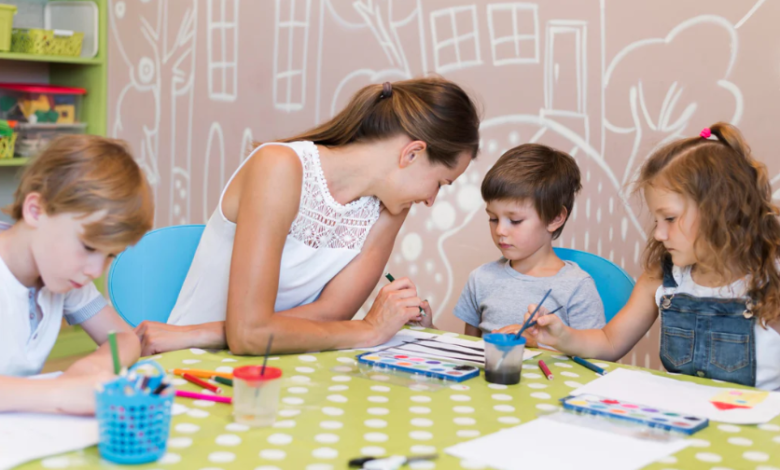Building Strong Foundations for Students in the Community

How do we give students the tools they need to thrive academically and personally? The foundation for every student’s success starts with more than solid academics; it involves fostering a supportive community, teaching essential life skills, and instilling confidence. Across the U.S., many schools are recognizing the importance of nurturing both intellectual and social development.
One example of this model is the growing role of public charter schools in Salt Lake City, which focus on creating enriched learning environments where students can thrive. But what fuels these foundational successes? Let’s explore how schools can build strong foundations for students and cultivate a community-first approach.
What Does a Strong Student Foundation Mean?
Creating a strong foundation for students is about more than academic achievement. It also means fostering personal growth, life skills, and a sense of connection with their peers and the wider community. Schools play an instrumental role in shaping these experiences, equipping students with not only the knowledge to excel in the classroom but also the abilities and confidence to succeed outside it.
Core pillars of a solid educational foundation include:
- Academic Growth: Cultivating skills in math, reading, science, and writing, giving students the core competencies they need to build their futures.
- Collaborative Learning: Encouraging teamwork and empathy through group projects and shared classroom experiences.
- Socio-Emotional Development: Nurturing self-awareness, resilience, and emotional intelligence in various situations.
- Community Engagement: Connecting with local organizations and causes to instill social responsibility and advocacy.
Why Community Matters in Education
The community is an integral part of shaping a student’s educational experience. Fostering a strong connection between students, teachers, parents, and local organizations helps create a sense of belonging that encourages active participation in learning.
Public charter schools in Salt Lake City, for instance, often emphasize building strong community ties by offering unique opportunities for families to engage in school activities and decision-making. This collaborative approach gives students not only educational guidance but also the encouragement and support they need to succeed.
Focusing on Connectedness
Research has consistently shown that students who feel a sense of belonging perform better academically and are more motivated to stay engaged in school activities. This is why fostering a strong school-community dynamic makes such a profound impact. When teachers, students, and families work together, it creates a system of support that uplifts everyone involved.
Schools often incorporate activities like parent nights, volunteer opportunities, and community fundraisers to strengthen these relationships. Additionally, partnerships with local businesses and nonprofits take learning outside the classroom, showing students how to make a tangible difference in their neighborhoods.
See also: What Does 3668252486 Teach Us About Digital Solutions
Key Steps to Building Strong Student Foundations
Building a strong foundation doesn’t happen overnight. It requires deliberate effort from educators, parents, and the community to nurture holistic student development. Here’s how schools and communities can collaborate to create these opportunities for growth:
1. Focus on Individualized Learning
Students thrive when they’re given the chance to learn in ways that align with their interests and abilities. Tools like adaptive curricula and tailored lesson plans ensure that every student gets the targeted support they need to succeed.
An increasing number of schools, including those in Salt Lake City, are implementing flexible teaching methods to meet diverse learning needs. This allows for celebration of each student’s unique strengths while offering extra support where it’s needed most.
2. Provide Socio-Emotional Learning Programs
Programs that teach socio-emotional skills like communication, responsibility, and conflict resolution are critical for building confident students. Incorporating mindfulness exercises or journaling sessions into the curriculum can help students better process stress and build resilience.
3. Encourage Community Partnerships
When schools partner with local organizations, it opens up opportunities for students to engage in real-world learning. For instance:
- Volunteering in community garden programs teaches sustainability.
- Collaborating with youth mentorship organizations builds leadership skills.
- Inviting local artists ensures students gain exposure to visual and performing arts.
Salt Lake City schools that actively connect students with community resources show how impactful these partnerships can be in fostering responsibility and independence.
4. Promote Parental Engagement
Parents are a student’s first teachers, and their involvement has a lasting impact. Schools that actively encourage family participation—from parent-teacher conferences to classroom volunteer opportunities—establish an inclusive network where every voice is valued.
5. Offer Extracurricular Activities
Strong foundations often bloom from well-rounded experiences. Beyond academics, extracurricular programs, whether in robotics, theater, or sports, give students the chance to explore interests, build teamwork, and develop lasting friendships.
A Bright Future Starts with Building Strong Foundations
For educators and communities alike, creating strong foundations for students means combining academic excellence with personal growth opportunities. Public charter schools in Salt Lake City are exemplary in this regard, merging tailored academics with community participation for a well-rounded experience.
When students are equipped with the right tools, skills, and confidence to succeed, they not only thrive as individuals but also contribute meaningfully to the larger society. Schools that foster such a holistic approach prepare their students not just for tests but for life itself.





